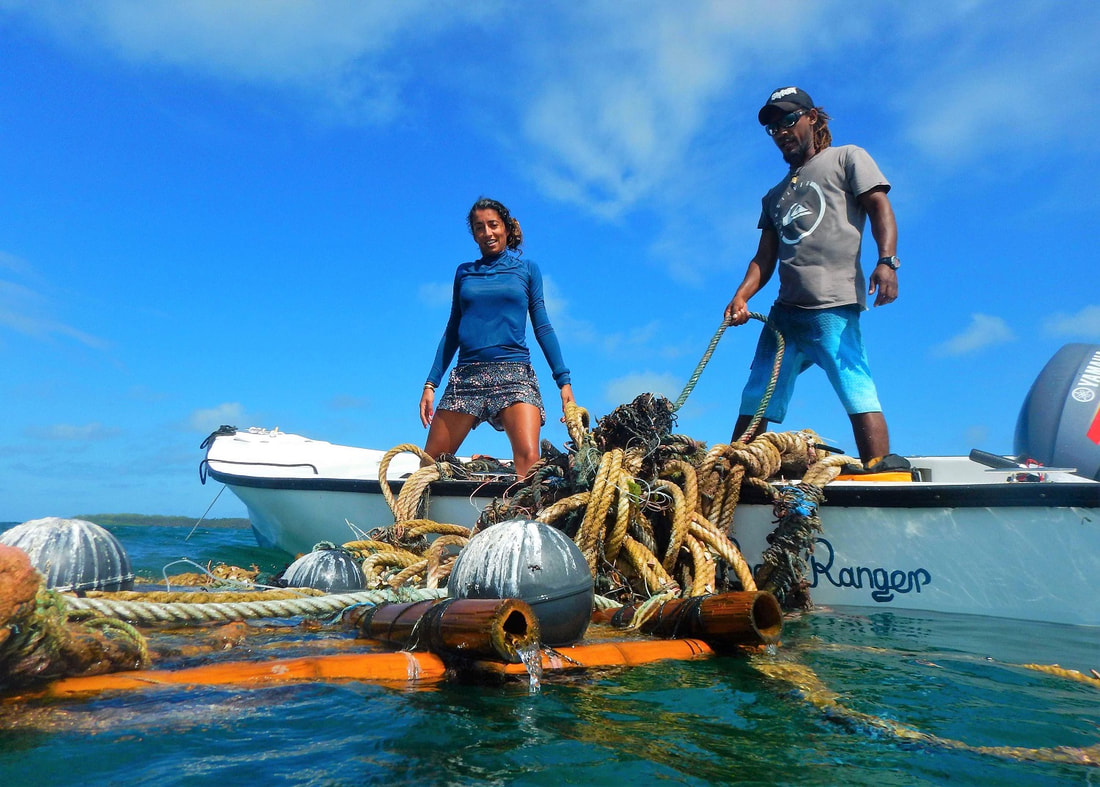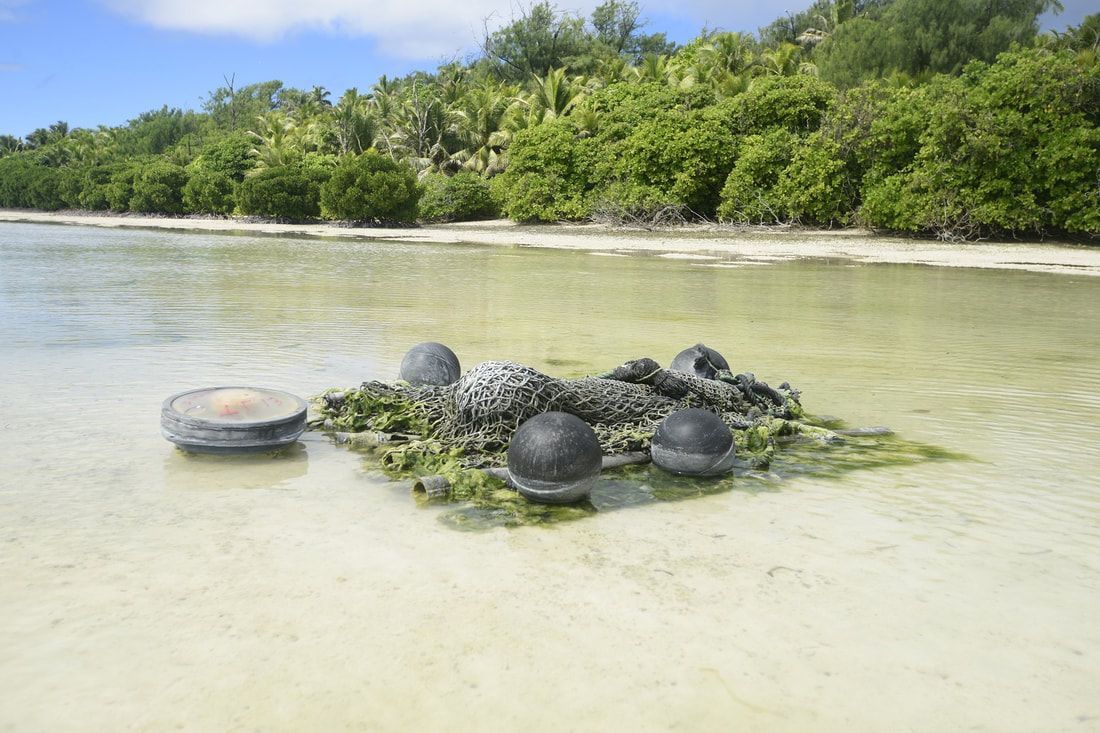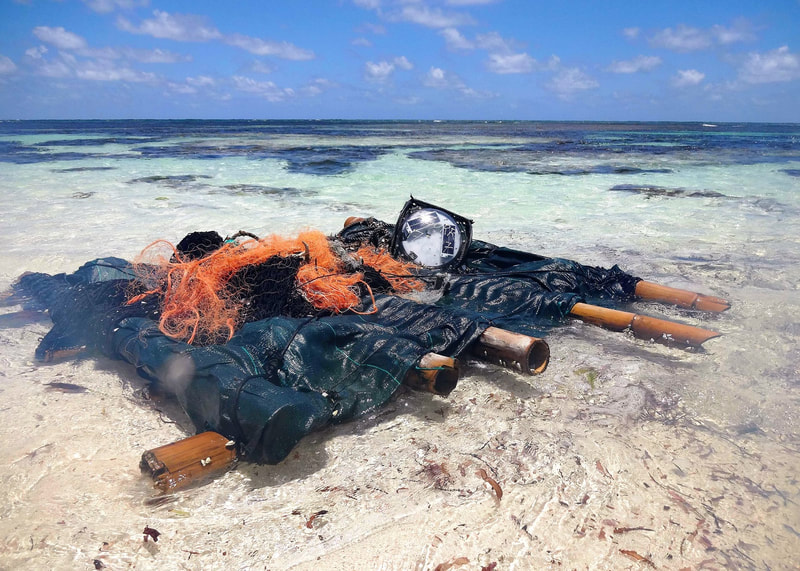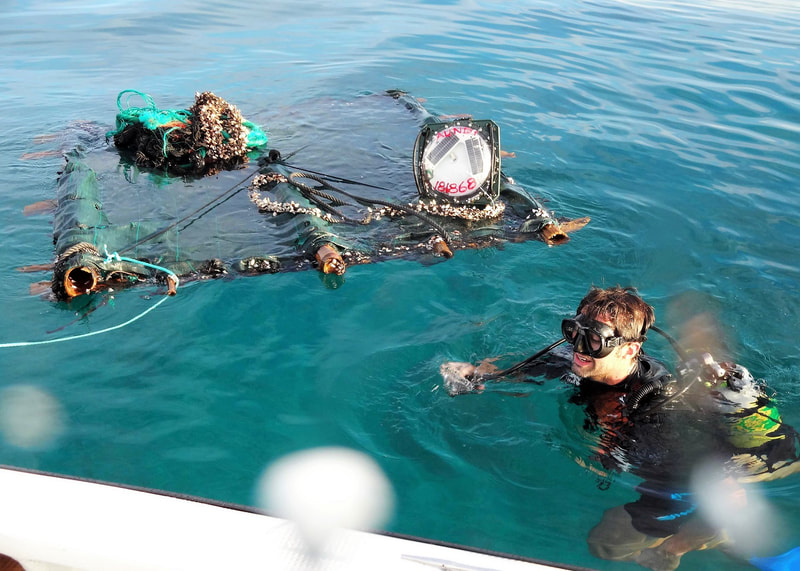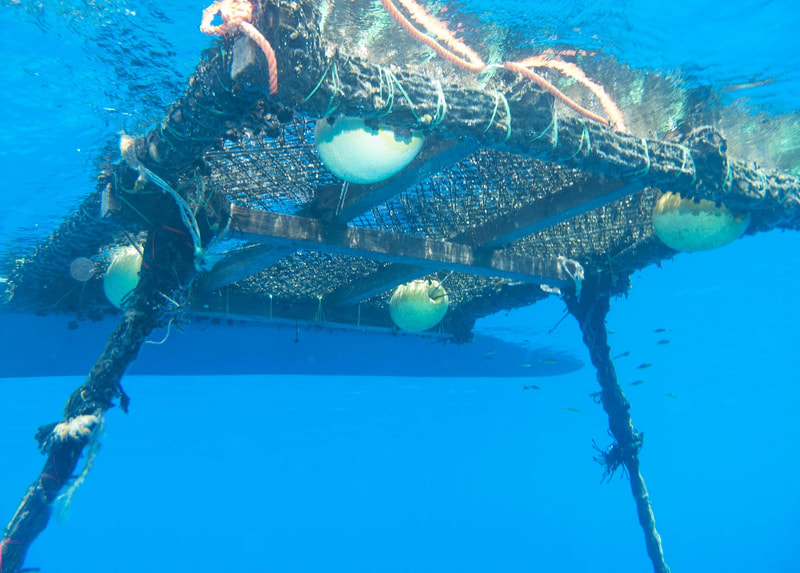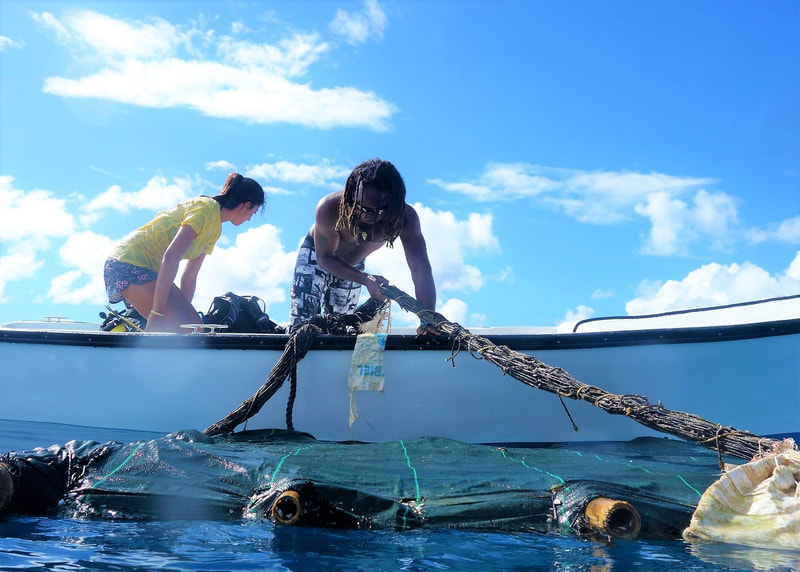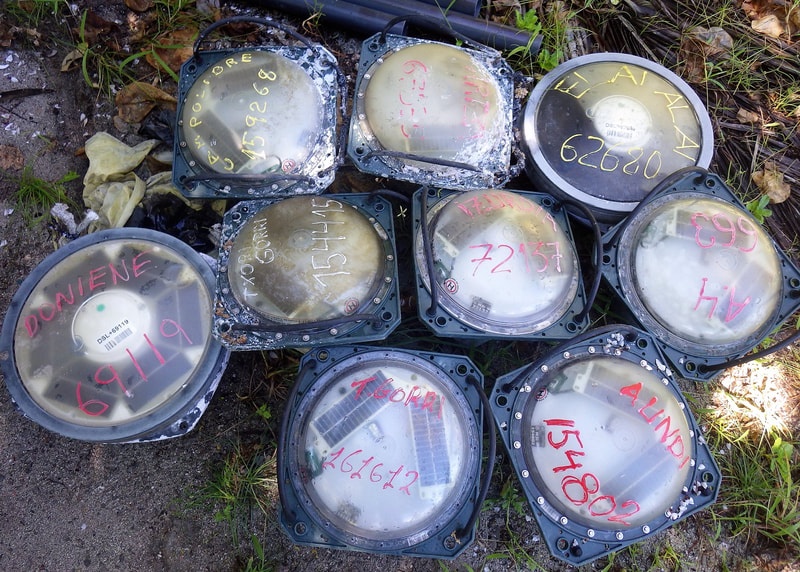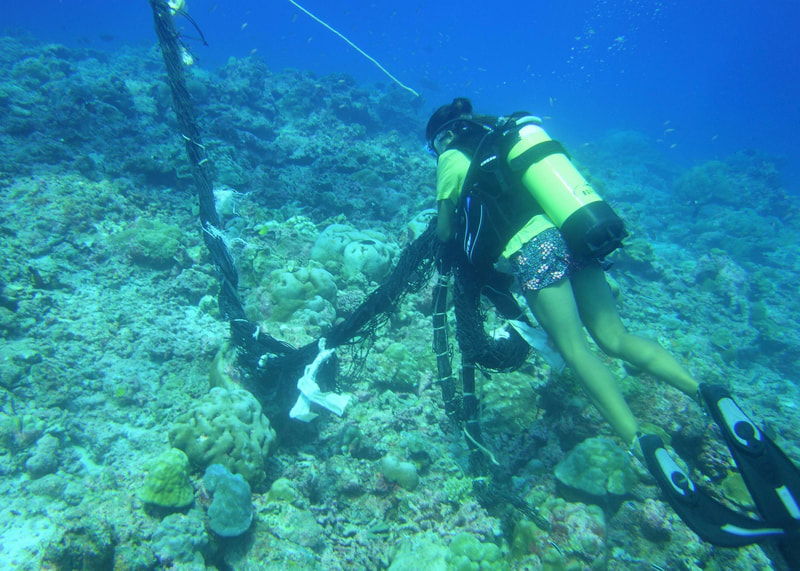|
ICS has again highlighted in local media the damage being done to marine ecosystems in the Indian Ocean by the use of Fish Aggregating Devices (FADs) by tuna fleets.
Ships have been strictly banned from throwing trash overboard for more than 30 years. Yet over the same period up to two million FADs have been dumped at sea each year and in most cases are not recovered. They are a legalised, poorly regulated form of marine pollution, employed by the richest fishing industry in the world to improve its productivity. Tuna was probably overfished in many parts of the world even before the widespread use of FADs, when pelagic tuna fleets targeted solely free-swimming schools of tuna. FADs are subject to little regulation. Nor has much attention been given to the environmental impact and the work inflicted on NGOs such as ICS attempting to defend fragile island and marine ecosystems when FADs wash ashore. The average FAD-caught fish is smaller and their use incurs a relatively large bycatch, including several species of pelagic sharks, turtles and juvenile fish. On top of that, FADs are washing ashore at almost every island in Seychelles, smothering coral reefs with tentacles of rope. It is back-breaking work to remove FADs entangled on reefs. It is arguably a form of marine pollution. The latest ICS article was published today 9 January 2021 and can be read in full in Today in Seychelles here and in Seychelles Nation here.
0 Comments
Your comment will be posted after it is approved.
Leave a Reply. |
Categories
All
Archives
June 2024
|

